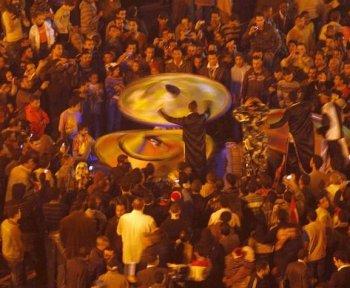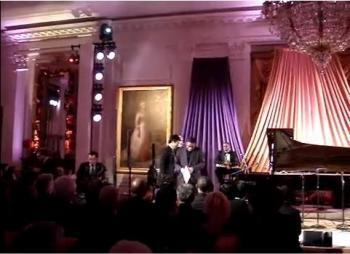On November 12, 2007, the official media of the Chinese Communist Party (CCP) stated that before the 2008 Beijing Olympics, the CCP plans to build a journalist database—a store of information on nearly 30,000 foreign reporters who will cover next year’s Games.
Liu Binjie, the head of the General Administration of Press and Publications (GAPP), claims that the purpose of building such a database is to make it easier to exclude fake reporters and unlicensed publications.
The China Daily and other official media of the Party formally reported GAPP’s statement earlier this week, but the foreign ministry openly denied the claim. At a press conference, Foreign Ministry spokesperson Liu Jianchao stated that related reports were not accurate. He said that there was no such database nor had he heard of any plan for establishment and implementation of such database.
On November 12, the New York based Committee to Protect Journalists (CPJ) issued a statement indicating that the purpose of compiling such a large journalist archive is an effort to ban reporters who’ve reported negatively on the Chinese communist regime.
Mr. Bob Dietz, the Asia Program Coordinator of CPJ, says the Chinese authorities have obviously been self-contradictory. “They changed their tone in just one day. The two departments have two different stories. We do not know what happened, but we hope the authorities will give a formal clarification and state their intentions.”
Dietz also called on the International Olympic Committee to oversee the database effort and urge the Chinese authorities to fulfill their promise for being open to the media for the Olympics. He says the Committee must stop the Chinese authorities from using Olympics name to restrict the freedom of the media in China.
After news broke of China’s reporters database, many immediately suspected that its purpose is in preventing reporters from investigating news unfavorable to the Chinese authorities.
“If reporters are not officially registered ones, should they be deprived of freedom when they come to interview in China? Whether news is fake or a reporter is fake should be judged by society,” said former China Ocean Newspaper reporter Zan Aizong.
“The [Chinese] authorities are doing this mainly for political reasons, in order to both regulate and control media, and to prevent foreign reporters, foreign news agencies and reporters inside China hired by websites from reporting ”negative“ news and sensitive issues during the Olympics,” explained Zan. “It is to create an atmosphere of public opinion friendly to the Chinese authorities before the ‘Two Sessions’ (the once-a-year full conferences of the National People’s Congress, and the National Committee of the Chinese People’s Political Consultative Conference) and the Olympic Games next year.”
“The key target of the official crackdown this time would be overseas Chinese websites,” Zan continued. “They are afraid of true news in China from being transmitted to overseas through foreign reporters, and they are even more afraid of such news coming back to China through overseas Chinese websites, which will break through the Party’s policy of fooling its own people.”
In an interview with the CCP’s official media, GAPP head Liu Binjie indicated that information on 8,000 foreign reporters has already been entered into the database. He explained that these journalists who have been granted the right to interview inside the Olympic stadium, right now the authority is collecting information on the other 20,000 foreign reporters who have been permitted to conduct interviews in China during the Olympic Games.
Liu added that fake reporters, especially the ones pretending to be from foreign news agencies, would harm the society and should be severely punished.
Will this measure be able to achieve its intended goal? Zan believes it can’t. Unless, of course, GAPP also sends enough agents to accompany the nearly 30,000 reporters.


